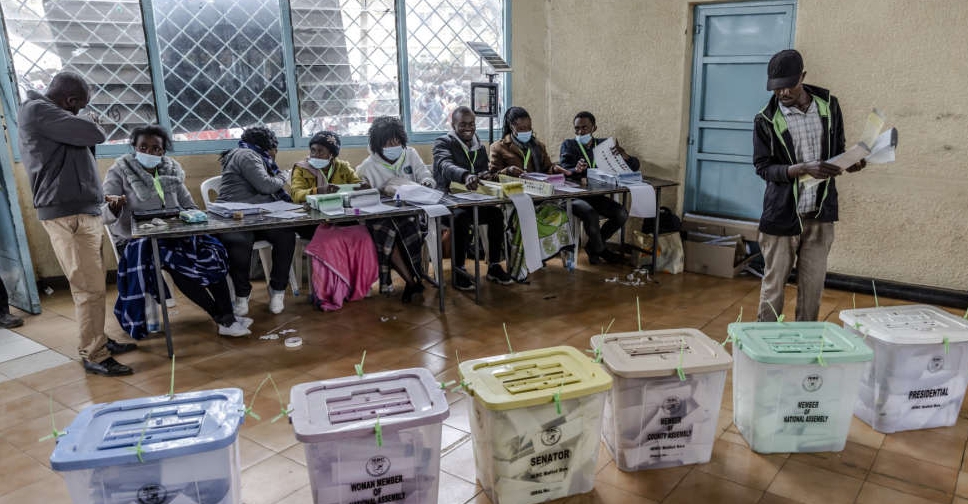
Preliminary results from Kenya's presidential election showed a tight race between the two main candidates vying to replace outgoing President Uhuru Kenyatta.
The Tuesday election is an important test for stability in East Africa's biggest economy after two of its three last elections were marred by violence following disputes over accusations of rigging.
The frontrunners, Deputy President William Ruto and veteran opposition leader Raila Odinga, were neck and neck with 1.2 million votes each, results tabulated by the private Citizen Television early on Wednesday showed, putting them at just over 49 per cent each.
The winning candidate must get 50 per cent plus one vote.
The election commission, the Independent Electoral and Boundaries Commission (IEBC), posted images of more than 90 per cent of election result forms, from a total of 46,663 polling stations.
But for now, the commission is only posting pictures, not numbers. Only two constituency-level results are available on the commission's website.
The constituency result forms have to be physically taken to the national tallying centre in the capital, Nairobi, and verified before the commission issues them as official results.
The process is partly the result of a Supreme Court ruling in 2017 that overturned the initial re-election of Kenyatta in August that year, citing the commission's failure to follow the process to the letter.
The final result from the IEBC is expected in days, although legally, it has up to a week.
Turnout was low on Tuesday, when voters also chose legislative and local authority representatives.
The commission said it believed that about 60 per cent of the 22.1 million registered voters cast ballots. Turnout was nearly 80 per cent in the last election in 2017.
Several factors were blamed for the disappointing turnout including drought in the north and voter frustration with the government's failure to tackle economic problems such as rising food and fuel prices.
Kenyatta fell out with his deputy Ruto after their re-election in 2017. He has endorsed Odinga.

 UK inquiry finds 'chilling' cover-up of infected blood scandal
UK inquiry finds 'chilling' cover-up of infected blood scandal
 Iranian President Raisi killed in helicopter accident, state media says
Iranian President Raisi killed in helicopter accident, state media says
 ICC prosecutor seeks arrest warrants for Israeli, Hamas leaders
ICC prosecutor seeks arrest warrants for Israeli, Hamas leaders
 Assange given permission to appeal against US extradition
Assange given permission to appeal against US extradition
 Israel intends to broaden Rafah sweep, Defence Minister tells US
Israel intends to broaden Rafah sweep, Defence Minister tells US




